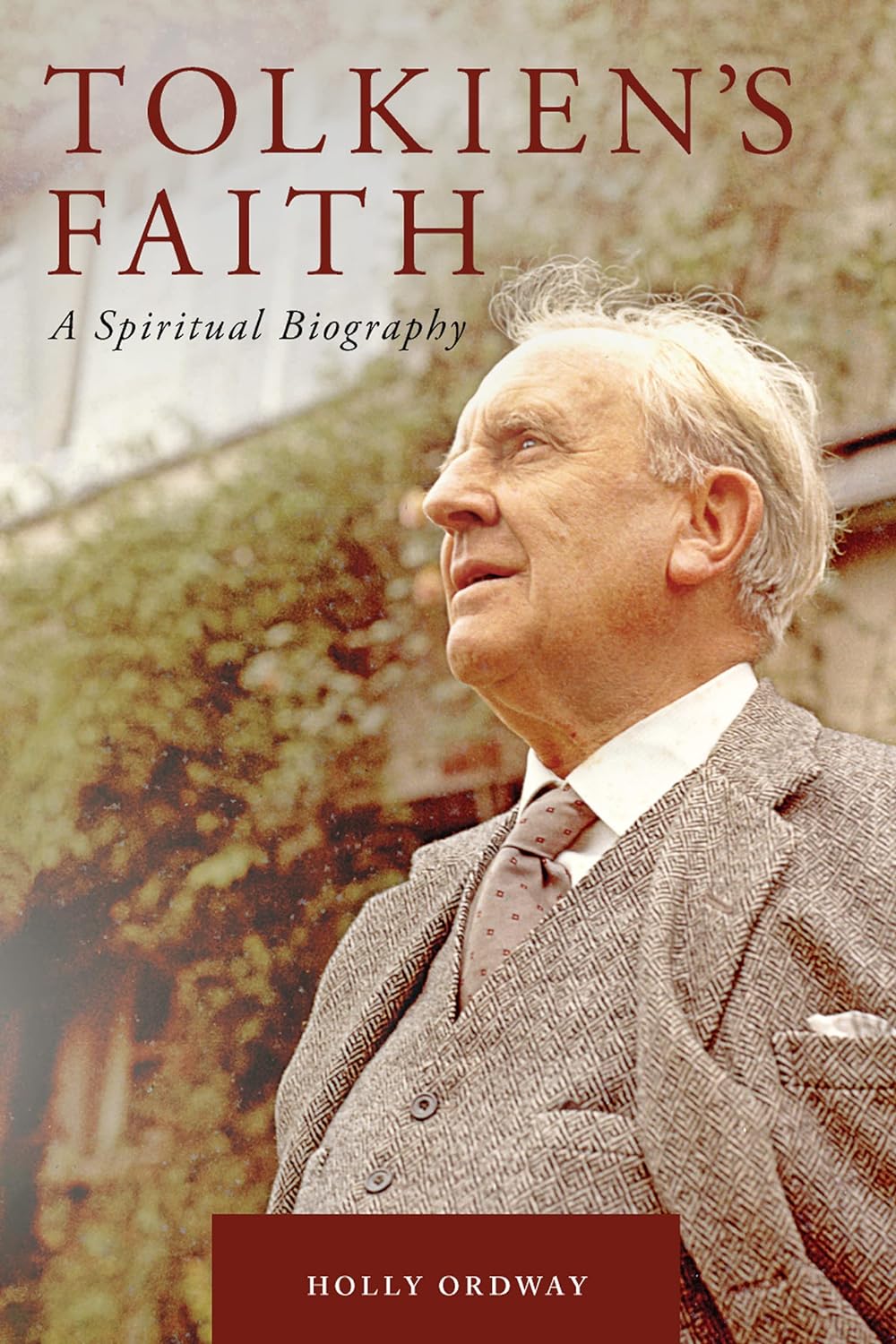
“Tolkien was annoyed when a critic claimed that The Lord of the Rings ‘contained no religion.’ On the contrary, he asserted, Middle-earth ‘is a monotheistic world of “natural theology.”’ True, he acknowledges that there is no organized religion, no churches or religious ceremonies, but this is, he says, because Middle-earth was a pre-Christian world. Even so, he points out that its religious practices, though undeveloped, were not altogether missing:
“As a matter of fact, there are references to God, either direct, in which he is called ‘the One’ in one place, or by implication, as in the conversation between Gandalf and Bilbo and Frodo and what it was that was directing the finding of the Ring, or in the Númenórean Grace, which is said by Faramir. But, of course, if you mean religious practices, you don’t get much, except perhaps, say, the Elvish hymn to Elbereth.
“Tolkien explained that because it is a pre-Christian world, he has not put in an ‘“embodiment” of the Creator’ into his story. In other words, there is no equivalent to the Christ-like Aslan in Lewis’s Narnia Chronicles, no single character who represents the divine, although figures such as Gandalf allow the reader to be, as Tolkien said, ‘reminded of the Gospels.’
“Gandalf provides a useful illustration of the way in which Tolkien integrates a Christian theme into the story. In his fight with the Balrog, Gandalf the Grey falls into the chasm beneath the Bridge of Khazad-dûm. Later, he reappears as Gandalf the White, having been ‘sent back.’ This story element is coherent and compelling in its own right and requires no recognition of any Gospel element for its imaginative effect. But a reader with even limited biblical knowledge will be reminded of the death and Resurrection of Jesus Christ, and greater familiarity with the Scriptures will allow for other resonances to be perceived. The scene in Fangorn Forest where Aragorn, Gimli, and Legolas encounter Gandalf the White, but at first fail to recognize him, has echoes of the Emmaus Road encounter in which two of the down-hearted disciples, leaving Jerusalem after the Crucifixion, meet the risen Jesus on the road — and even speak with him — but do not realize whom they have met: ‘their eyes were kept from recognizing him.’ Jesus explains to them the meaning of the events they have witnessed and then, at their request, stays with them for a meal; at the breaking of the bread, ‘their eyes were opened and they recognized him; and he vanished out of their sight. They said to each other, ‘Did not our hearts burn within us while he talked to us on the road, while he opened to us the scriptures?’ (Luke 24:13-35)
“Even so, Gandalf is a reminder or echo only, not a portrayal of Christ. The pattern of Gandalf’s story, like that of the Old Testament prophet Jonah who descends into the belly of the whale and is then vomited forth three days later — and like the pagan stories of dying and rising gods that meant so much to the pre-Christian Lewis — prefigures or foreshadows the narrative trajectory of Christ but does not represent it. Tolkien’s reticence in portraying the Incarnate God sprang not only from the fact that the ‘Third Age’ is a pre-Christian age but also from a deep sense of humility at this central Christian mystery: ‘The Incarnation of God is an infinitely greater thing than anything I would dare to write.’”
— from Holly Ordway, Tolkien’s Faith: A Spiritual Biography (Word on Fire Academic, 2023). Ordway talked about this book on Volume 160 of the Journal.